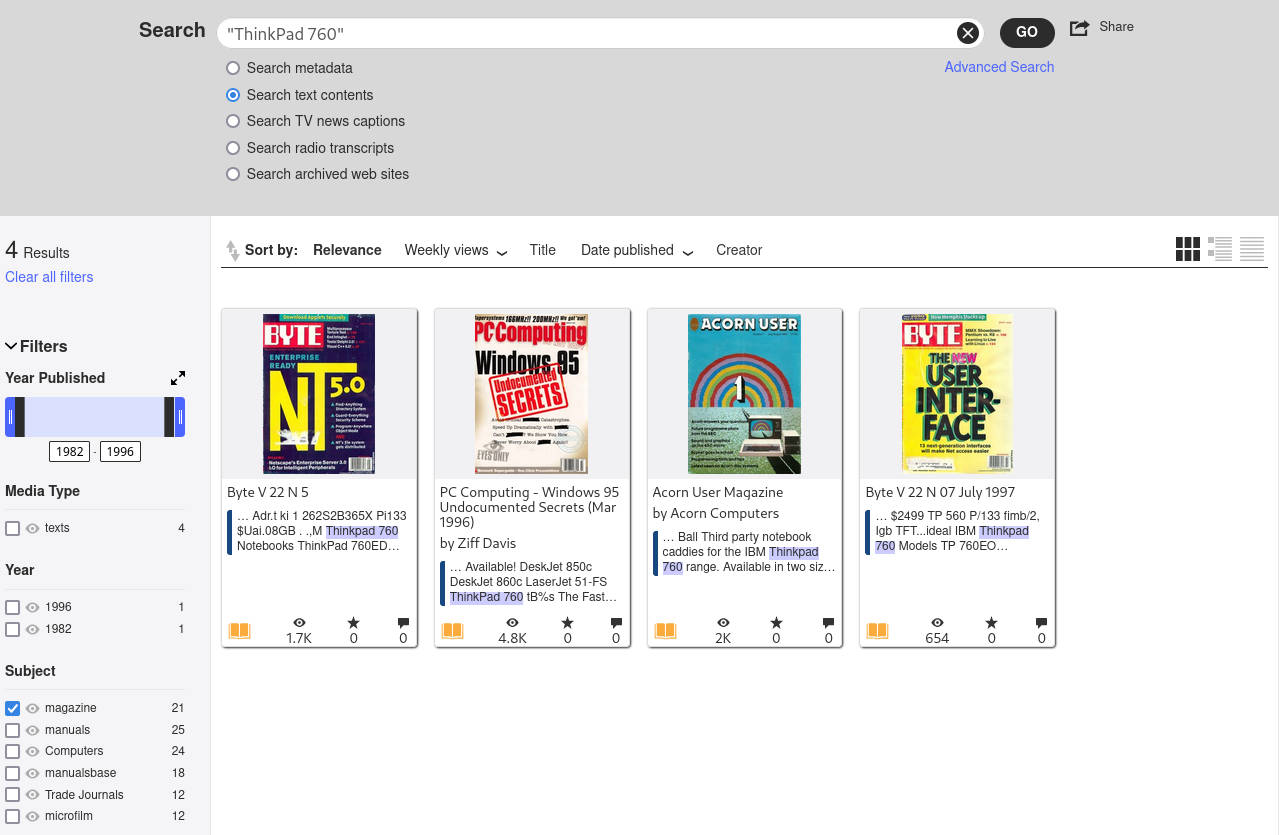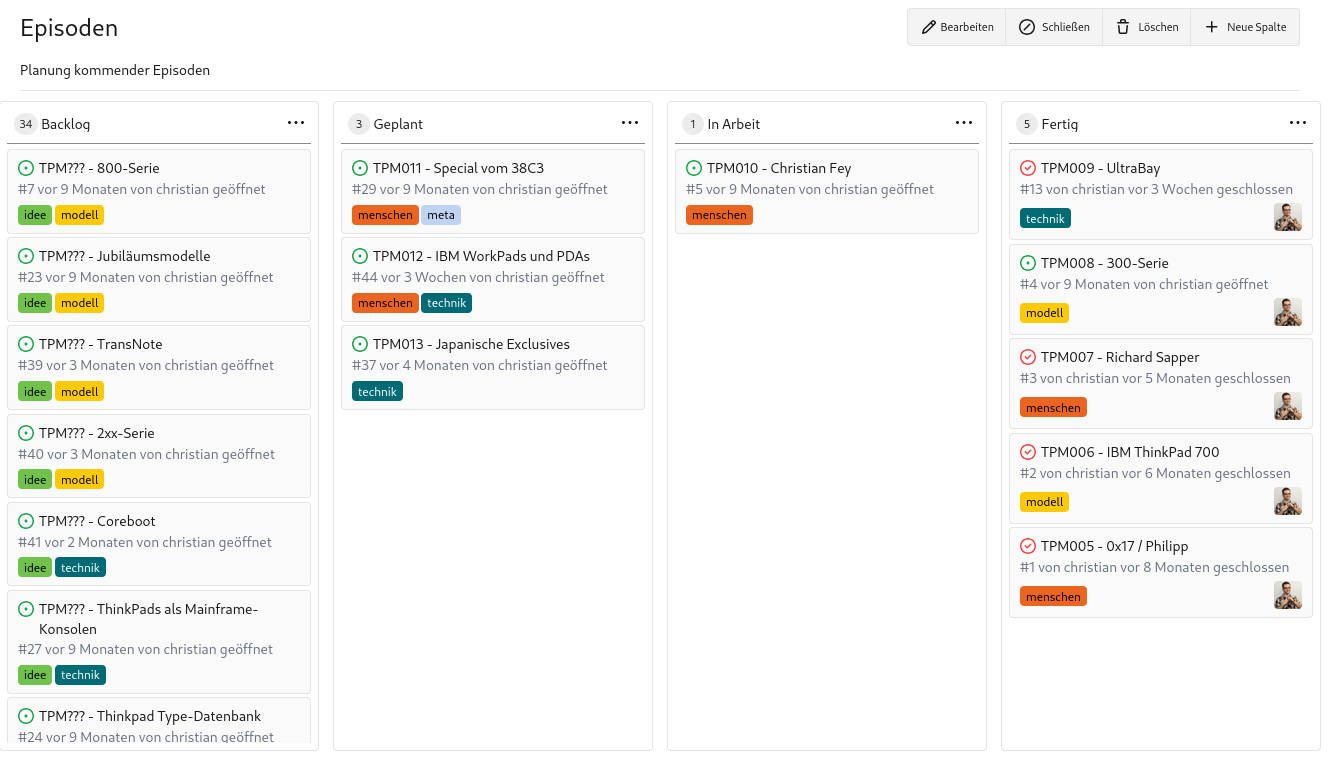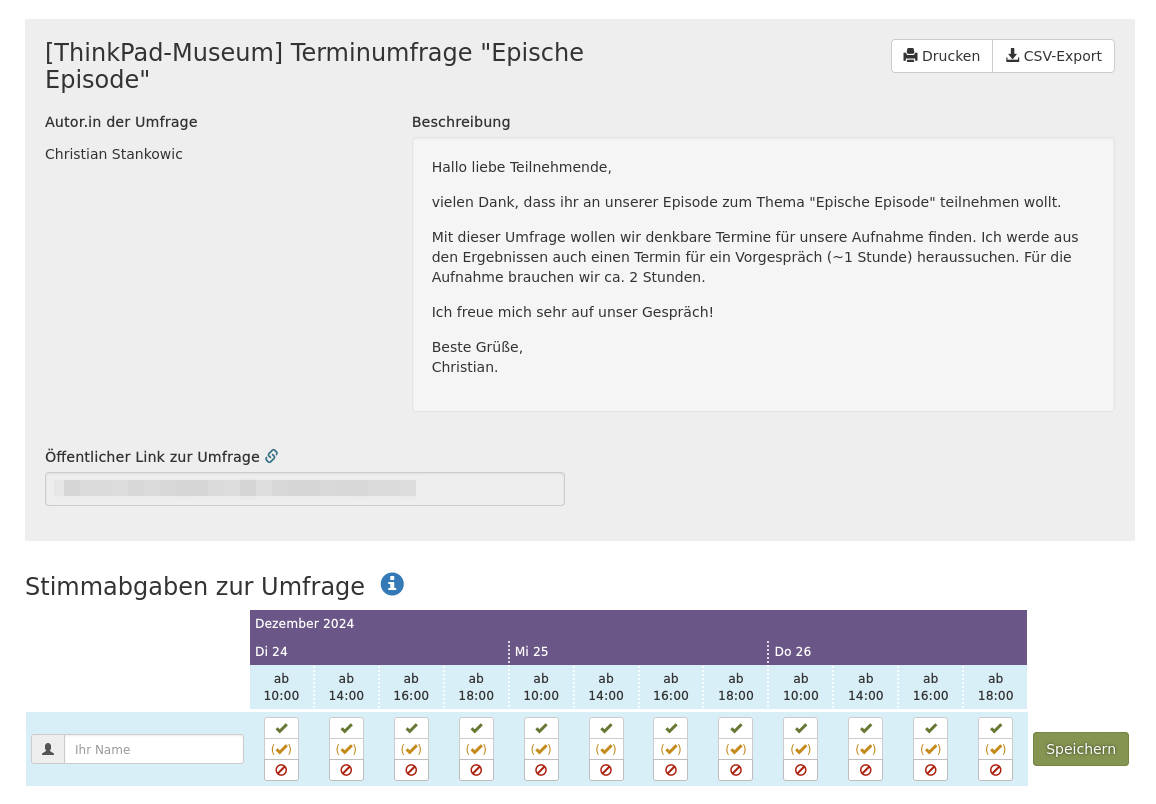TPM Insights 2: Episode planning
In this series of articles I give you an insight into the ideas and processes behind the scenes at the museum. In this part, I’ll show you how episodes are planned.
Sources
Even if ThinkPads are a supposedly niche hobby, there are numerous sources for new topics. In addition to some internet communities, there is even literature about it - a selection:
| Title | Author | Year of publication | ISBN |
|---|---|---|---|
| How the ThinkPad Changed the World and Is Shapring the Future | Arimasa Naitoh, William J. Holstein | 2017 | 978-1-5107-2499-0 |
| ThinkPad - A Different Shade of Blue - Building a Successful IBM Brand | Deborah Dell, J. Gerry Purdy | 2000 | 0-672-31756-7 |
| Richard Sapper, Edited by Jonathan Olivares | Jonathan Olivares | 2016 | 978-0714871202 |
The German-language ThinkPad Wiki and the international ThinkWiki are probably the most comprehensive internet research sites. Technical details can be traced for a long time through archived Hardware Maintenance Manuals. The Internet Archive also often contains contemporary test reports if the Search text contents and magazine filters are set.

Finally, the various communities are also a good way to network with like-minded people and find interesting topics and discussion partners:
- ThinkPad forum
- forum.thinkpads.com (oldest ThinkPad forum)
- r/thinkpad (Reddit)](https://www.reddit.com/r/thinkpad/)
- c/thinkpad (Lemmy)](https://lemmy.ml/c/thinkpad)
#thinkpadon Mastodon](https://mastodon.social/tags/ThinkPad)
Some content creators also deal with ThinkPads:
- Laptop Retrospective
- This Does Not Compute (occasionally)
- NotebookcheckReviews
The Laptop Retrospective is particularly noteworthy here, as it also features extremely informative interviews with contemporary witnesses and developers.
Episode planning
So there are plenty of sources of inspiration - ideas for further episodes quickly emerge while browsing in the evening. This is the first step in the planning process: the idea is documented in bullet points.
I use a Git repository for this, in which I document the current and future episodes in a Kanban board:

The first key points end up directly in the board’s map, a folder with different files is then created for a specific episode:
- Cover image
- Loose collection of links and thoughts, a kind of dossier, so to speak
- Content concept: Notes on the episode as a rough agenda for the recording
- Shownotes

For the formulation of the documents I use Markdown, as it is an open standard and can be edited with different editors and operating systems. This is particularly useful for the episodes for which I invite guests. I can easily share the document I’ve created via a cloud service, such as Nextcloud, and allow external editors to edit it at a low threshold.
I use the nuudel service to simplify scheduling with guests. Possible time slots can be entered here and feedback can be obtained. The underlying software is Framadate and can also be self-hosted. Another option would be the Polls app for Nextcloud.

If I don’t know the guests yet, I usually plan a get-to-know-you appointment. This serves to get to know each other and create a pleasant atmosphere. You can also discuss and refine the rough agenda here.
A friendly text helps here, e.g:
Hello dear participants,
Thank you for wanting to take part in our episode on the topic of “Epic Episode”.
With this survey we want to find possible dates for our recording. I will also pick a date for a preliminary talk (~1 hour) from the results. We need about 2 hours for the recording.
I am very much looking forward to our conversation!
Best regards, Christian.